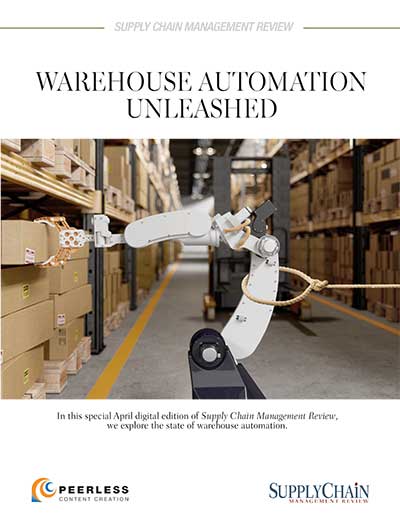Given the ecosystem complexity of new global enterprises these days, managers are now looking to sustainability to unlock new financial benefits.
A new HSBC survey of more than 8,500 companies in 34 markets – Navigator: Now, next and how for business – has found a trend of businesses making sustainability changes in their supply chains to improve their bottom lines.
Almost a third (31%) of companies globally plan to make sustainability-related changes to their supply chains over the next three years. Of those making ethical or environmentally sustainable changes to their supply chains, cost efficiencies (84%) and improved revenues and financial performance (also 84%) are the main motivations.
This trend comes as companies face increasing pressure from customers to be more sustainable and transparent about their sourcing. With around 80% of a company's environmental impact found in its supply chain1, the ‘green' credentials of strategic suppliers and partners are critical factors in a firm's reputation and performance.
“As businesses explore and invest in ways to stay competitive for the future, the most forward thinking are already taking action, says Bryan Pascoe, Global Head of Client Coverage, HSBC Global Commercial Banking.
“Transitioning to become more sustainable is not only beneficial for the environment and for society, but for the bottom line too.”
Transparency is a key criteria for more than a quarter (26%) of companies when seeking new suppliers, according to the survey, as consumers increasingly want to know where the products they buy come from and how people, animals and the environment have been treated during production.
Added to this, regulators and investors are putting more pressure on companies to disclose their sustainability practices, which explains why 85% of businesses want to achieve a sustainability standard recognized by their sector or market.
In response, companies in emerging market countries are particularly keen to increase their ethical and environmental standards. More than one in five (21%) businesses based in emerging markets plans to make improvements over the next two years, compared with 15% in developed markets.
As one in five (20%) companies say they have taken greater control of their supply chains over the last two years, this presents a timely opportunity for businesses to assess their networks and take action to become more sustainable, which can help them remain competitive in an increasingly demanding trading environment. Some are already getting results, with 17% claiming to have reduced their impact on the environment over the last two years.
The transition to a more sustainable future has many benefits to businesses – and banks have a role to play too. HSBC's network, financial expertise, tools and connections support businesses of all sizes to take the steps needed to become more sustainable and remain competitive in today's world.
“A third of companies are planning to improve the sustainability of their supply chains, and we can expect that digitization will play an important part in this,” he says
There are great innovations already at play to help transition trade to paperless including automation, machine learning and blockchain technology.”
Furthermore, says Nivison, these technologies will ultimately make trade faster, safer and cheaper, which in turns will deliver huge benefits to the environment.
“New technologies also give companies greater control of their supply chains – they have a better sight of where the sustainability gaps are. This contributes to greater transparency, which 26% of businesses rate as a key criteria when selecting new suppliers,” he adds.
Nivison also notes that recognizing this trend is half the battle.
“We were encouraged to see that peer and industry pressure is supporting companies to improve their green credentials,” he says. “Supply chain managers know that if they want to be competitive and gain new customers they have to evidence high sustainability standards, and demand similarly high credentials from their suppliers.”
Another pleasant surprise surfacing in this study was that a large number of smaller and medium-sized companies are equally interested in improving the sustainability of their supply chains.
“Being green is not only the prerogative of large players,” concludes Nivison.
Patricia Espinosa, Executive Secretary, United Nations Framework Convention on Climate Change, concurs, noting that supply chain managers participating in the Carbon Disclosure Project (CDP) are beginning to see financial benefits even now.
“Action on climate change has never been more necessary or more achievable,” she says in a recent report issued by the San Francisco-based think tank BSR.
The CDP is an organization headquartered in the United Kingdom which supports companies and cities to disclose the environmental impact of major corporations. It aims to make environmental reporting and risk management a business norm, and drive disclosure, insight and action towards a sustainable economy
“Year after year we see the hottest temperatures on record and the impact this has on the ecosystems that sustain us all. Against this backdrop, the Paris Agreement has entered into force.”
This decisive statement of intent, born of unprecedented global consensus, marks a truly meaningful step towards a low carbon future, she adds.
“The stage is set, the world is watching, now we must act. By raising awareness of the positive aspects of supply chain action, it is possible to deliver tangible, meaningful results for the bottom line and the planet.”
SC
MR


Latest Supply Chain News
- Tech investments bring revenue increases, survey finds
- Survey reveals strategies for addressing supply chain, logistics labor shortages
- Israel, Ukraine aid package to increase pressure on aerospace and defense supply chains
- How CPG brands can deliver on supplier diversity promises
- How S&OP provides the answer to in-demand products
- More News
Latest Resources

 Explore
Explore
Business Management News
- Survey reveals strategies for addressing supply chain, logistics labor shortages
- How CPG brands can deliver on supplier diversity promises
- How S&OP provides the answer to in-demand products
- AI, virtual reality is bringing experiential learning into the modern age
- Tips for CIOs to overcome technology talent acquisition troubles
- There is still work to do to achieve supply chain stability
- More Business Management
Latest Business Management Resources

Subscribe

Supply Chain Management Review delivers the best industry content.

Editors’ Picks





